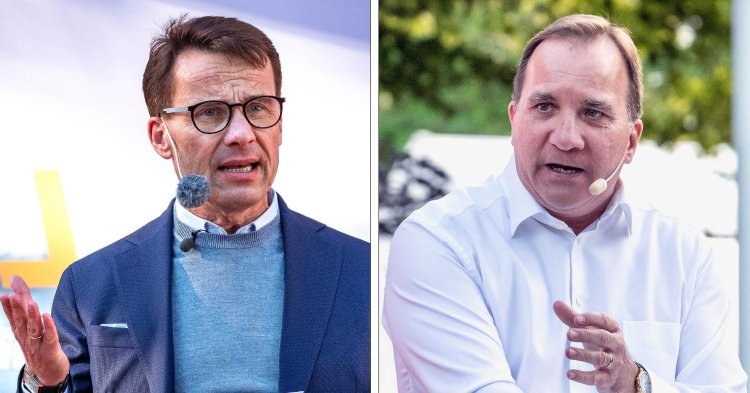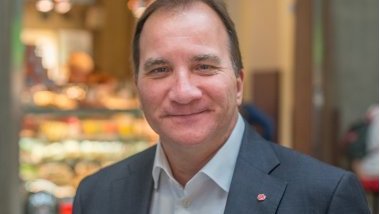The battle for which party will lead the next Swedish government drags on. Support for the far-right Sweden Democrats rose significantly in the election on 9 September (it is now the third-biggest party with 17.5% of votes and 62 parliamentary seats), while mainstream parties both on the left and the right declined. As a consequence, only one parliamentary seat separates the centre-left (144) and the centre-right (143) blocs. Both are struggling to reach the majority needed to form a viable government that is not forced to rely on the support of the Sweden Democrats.
The end of the centre-right alliance
Three weeks ago, Ulf Kristersson, leader of the second-largest party, the liberal-conservative Moderates, was invited by the speaker of the Swedish parliament to try to form a government. However, the first round of inter-party talks broke down last week, as Kristersson failed to convince two of his centre-right allies (the Centre Party and the Liberals) to join him in a government supported by the Sweden Democrats. The Centre Party and the Liberals have long been vehemently opposed to any cooperation with the Sweden Democrats. By spurning Kristersson’s invites, they definitively broke the centre-right alliance which has been a permanent feature of the Swedish political landscape for over a decade.
Social Democrats negotiating with liberal opposition parties
Following Kristersson’s failure, on 15 October Stefan Löfven was asked to take over the negotiations to form a government led by the Social Democrats, which remains the biggest party. However, it is unlikely that he will be more successful. Löfven’s best option is to get the Centre Party and the Liberals on his side. If he manages to get the Centre Party’s support (or at least avoid their active opposition), in addition to that of the Greens and the Left Party, he will have the requisite mandates to remain prime minister.
However, any cooperation between the Social Democrats and the liberal parties is problematic. The three parties agree that the Sweden Democrats should not be given any influence over a future government, but disagree on many key policy issues, such as taxes and labour rights. Löfven has denied that negotiations with the Centre Party will necessarily lead to a weakening of labour rights, which remain a major concern for the labour movement in Sweden. Nevertheless, some commentators suggest that the Social Democrats may be willing to compromise on many issues to gain the support of the liberal parties, though the latter remain skeptical to Löfven’s advances.
Both the Centre Party and the Liberals prefer a cross-parliamentary government of the kind that ruled Sweden during the Second World War, and which includes both the Moderates and the Social Democrats. However, this is generally considered an unrealistic option, since neither the Moderates nor the Social Democrats want to alienate their party bases by cooperating with the other. The Centre Party and the Liberals must eventually choose which one of the two biggest parties to support, but are unwilling to budge just yet.
Time is running out
Löfven must present a viable government option by next Monday, or the power to negotiate reverts to another party, most likely back to the Moderates or to the Centre Party. Speaking to the press yesterday morning, Löfven gave no clear indication of how much progress has been made. The situation is unprecedented, and the rounds of talks could in theory continue until the next election in four years. A new election before that is unlikely, since most parties are unwilling to launch new campaigns, and recent polls suggest that the result would be largely the same. If the deadlock continues, the Social Democrats and the Greens will continue to lead an interim minority government for the foreseeable future.



Follow the comments: |
|
